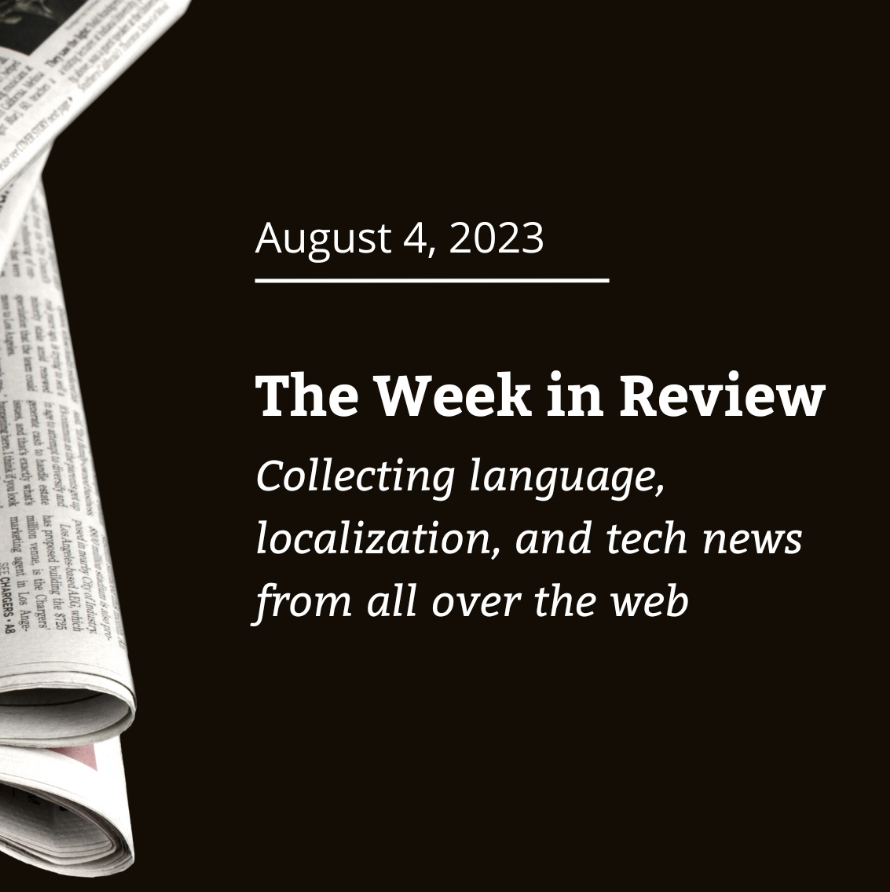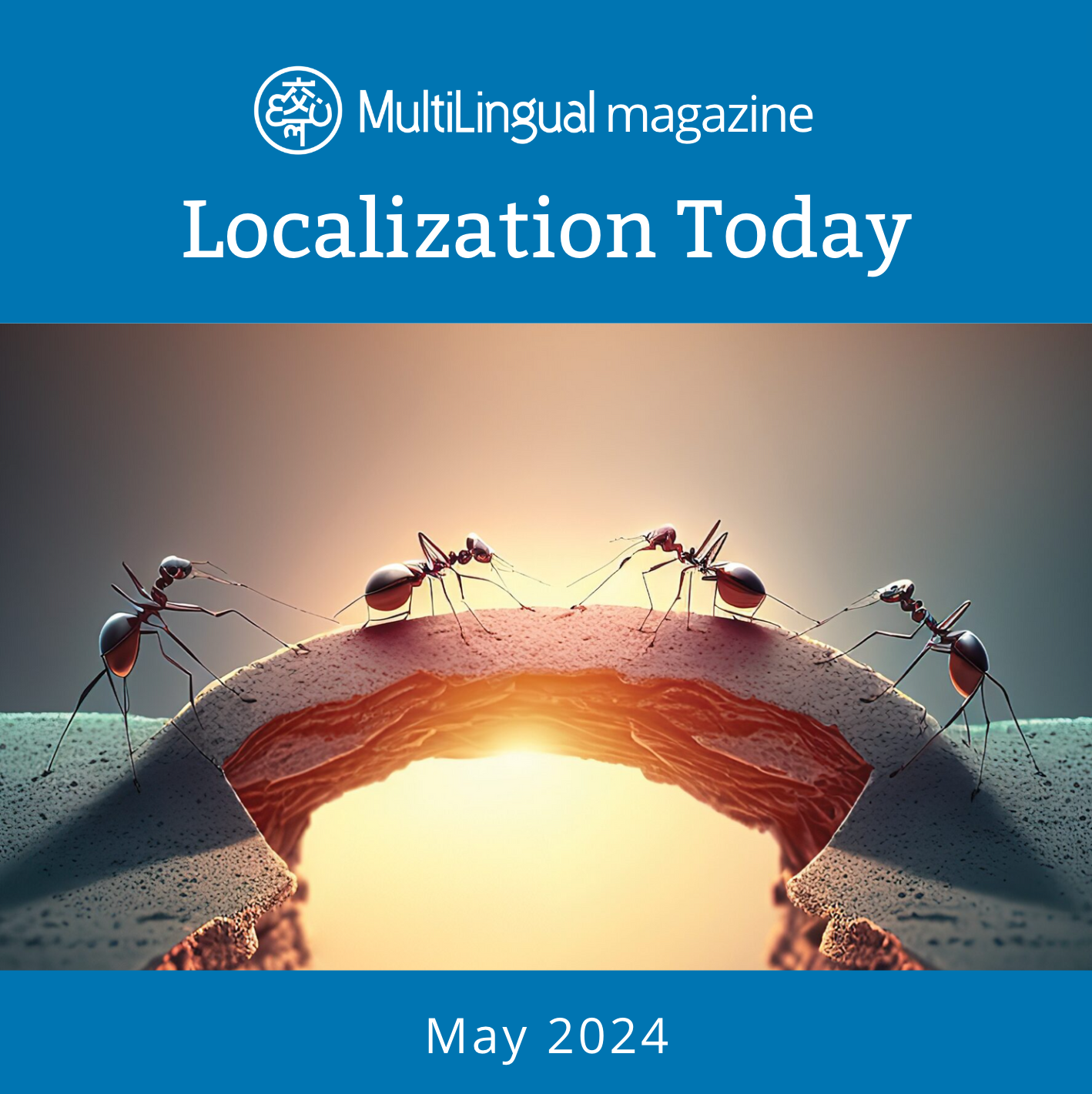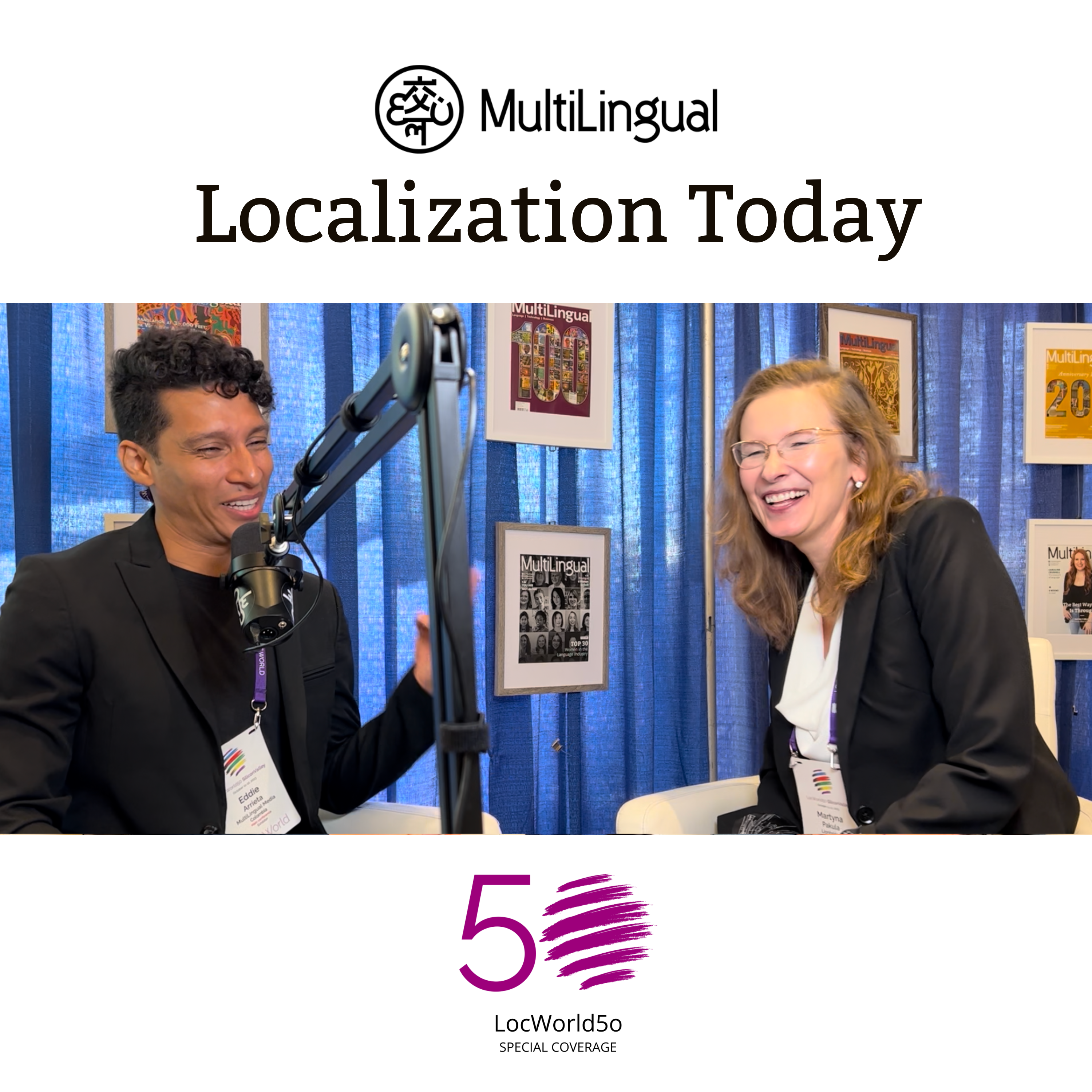Episode Transcript
In 2018, Airbnb began a major transformation in its localization strategy and operations, developing and executing countless decisions, projects, products, processes and improvements — which have not only collectively produced strong business results, but also garnered external validation.
Byte Level Research’s 2022 Globalization Report recently ranked Airbnb #1 in the Travel & Hospitality sector for the third year in a row, and #3 among the top 150 global companies. And while I believe this alone is an achievement, this recognition is even more remarkable when you consider that Airbnb was ranked just #17 in its sector and #96 among all companies a few short years ago.
Like most transformations, it has been a long and winding road. But it is a story that I am proud to share, one that can serve as a model for other companies across tech and travel beginning their own localization journey.
The beginning of Airbnb’s localization journey
Before 2018, Airbnb had taken the approach of simply “translating” into 31 foreign languages. This meant that there was a one-size-fits-all approach to product architecture, content creation, and design, with a lack of full visibility and measurability in the content translation pipeline. This prevented Airbnb from optimizing content per product, surface, region, and language, among other issues.
Essentially, Airbnb needed to properly invest in scalable localization and internationalization, especially given the global nature of our business.
When I joined Airbnb in 2018, one of the first tasks in those early weeks was to outline a three-year strategy that would indeed fundamentally transform Airbnb’s approach to localization and internationalization. That included:
Getting the basics right to improve operational efficiency
Expanding Airbnb’s reach and going wide
Driving growth and going deep
This strategy was meant to power and augment our bread-and-butter mission of supporting all of Airbnb’s localization needs across the entire company and functions in all supported locales, while continuously improving the quality of our localized products and experiences, increasing velocity, and reducing unit costs.
Getting the basics right to improve operational efficiency
A building needs a strong foundation, so as the localization team got to work, it became our top priority to fix the basics, creating a fast, scalable, and efficient operating model and improving translation quality, while starting to deprecate non-scalable tools and processes.
One initial key strategic decision was to outsource all translation work to a single best-fit localization provider — Translated — and establish a long-term partnership working as one team with clear common goals.
This single decision allowed Airbnb, over time, to continuously increase translation quality and velocity while reducing costs. In turn, the localization team could partner more closely with other internal teams and stakeholders, expanding their influence and scope across all regions as well as company-wide, while getting involved earlier in the product life cycle.
Expanding Airbnb’s reach and going wide
As 2019 kicked off, our top strategic objective was to extend our global reach. This included adding a total of 33 new languages — as well as right to left language support with the launch of Arabic and Hebrew, a first for Airbnb — across web, iOS, Android, and mobile web. We also upgraded from a language selector to a locale selector, now visibly placed in the header.
Thanks to all the foundational work Airbnb did in 2018 — including establishing that strong partnership, alignment, and trust with Translated and internal stakeholders — we were able to go wide in 2019 and deliver in record time one of the single largest language expansion projects in the localization industry. In fact, our work led Nielsen Norman Group to cite Airbnb as an example for how e-commerce sites can improve language switchers, mentioning how our improvement now “listed the name of the country and the corresponding language to make it easy for users to select the right version” and “made suggestions based on the user’s browser settings and their past interactions with the site.”
In addition, now that we had a more sturdy foundation, it was easier to rapidly improve in other key areas. This included bringing our operational velocity down to three days and 12 hours for urgent, and pushing our translation quality from 15 to eight errors per thousand words.
Localization during the COVID-19 pandemic
In February 2020, our hard work received some external acknowledgement, when Byte Level Research published their 2020 Report Card ranking Airbnb ranked #1 in the Travel and Hospitality sector for the first time and #8 among all global companies. Airbnb was also ranked as the “Most Improved” among all global companies, with the Report Card noting: “Airbnb is making a long-term investment in serving millions of additional travelers and placing the burden on competitive travel companies who have thus far ignored these travelers.”
But of course, this was far from the only development to mark 2020 for Airbnb.
In March, the World Health Organization declared COVID-19 a pandemic, and life changed for everyone. In our case, Airbnb lost 80 percent of its business in about eight weeks. As Airbnb co-founder and CEO Brian Chesky often recounts, “Losing that much business in eight weeks when you’re Airbnb’s size — it’s like driving an 18-wheeler at 80 miles an hour and slamming on the brakes.”
A couple of months into the pandemic, we saw something interesting start to happen. Tired of staying at home, people began to start traveling again, venturing to nearby, domestic destinations where they could safely social distance, oftentimes in the outdoors. We also saw some guests using Airbnb to work or learn remotely, or even live anywhere in a new destination — a trend that continues today.
Amidst these rapid changes, Airbnb’s localization team had to adapt to this new reality — and remarkably, was busier than ever. At the beginning of the COVID-19 pandemic, we were hard at work updating guests and hosts in 62 languages around the clock and around the world, particularly those who were traveling to listings or who had a planned stay. Airbnb developed new policies to take into account the new world we were in – including an extenuating circumstances policy for cancellations related to COVID-19. This entailed months of localizing emails, notifications, products, and help articles to keep our community worldwide informed.
Though we could never have predicted the twists and turns that 2020 would take, it did show that localization expansion work was paying off — although in ways that we didn’t expect.
Improving translation of user generated content
While we did some exploratory work around user-generated content in 2018 and 2019, our initial plan was to work on this in earnest in 2020. And though the pandemic upended our original plans, in hindsight, the extra year allowed us to further refine and improve our strategy, and by 2021, we had developed the foundation — as well as the credibility, confidence, and support — we needed to launch a better product.
Last year, we embarked on what became one of Airbnb’s service upgrades and a milestone in the localization industry — Translation Engine, the code name of our new machine translation innovation. Working with Translated, Airbnb created a first-of-its-kind user experience based on state of the art technology. With Translation Engine, the new default is for hosts and guests to see all user generated content in their preferred language, supporting comprehension, conversion, SEO, and guest-host interactions.
Before Translation Engine, Airbnb’s hosts and guests were presented with user-generated content in whatever language was used by the user, including languages they were not proficient in. Thanks to our innovation, all hosts and guests will always see all content automatically translated in their preferred language. One of the reasons why Translation Engine bears its name is because — like an engine — it is made of many components, and the overall success of the engine depends on how all these components work together. An important part of the work was to find the right balance between quality, performance, and capacity. At the end we were able to improve the quality of our listings by 99 percent, while also improving the speed and the capacity.
The lessons we have learned along the way
As the internet has made the world increasingly smaller, any company now has the potential of reaching millions of people online. According to Byte Level Research, every day about 1 million people join the internet for the first time, and only nine out of 100 new internet users speak English. Not only is English no longer the most-used language online, but the largest and fastest growing segment of users is made of all the “other” non-top-20 languages combined.
Given this, the role of localization teams is going to be even more critical in the years — and with that, Airbnb’s evolution over these past four years could offer a learning opportunity for those who are just beginning their own process.
To start, from day one — and every day since — the ethos of our team here at Airbnb has been to question everything and try to innovate wherever possible. I find that played a role in our success.
Our first innovation was to select and focus on just one language service provider. While the traditional wisdom is that companies should hedge their bets and use more than one provider, in my experience, this was causing more issues than it was solving. With one provider, we could work as one team and become true partners with common goals and metrics.
Another thing we did was to align our team with the values and business goals of the company. This has allowed our team, over time, to expand and deepen our role, and get involved further upstream in all processes.
Localization is also viewed as a foundational asset at Airbnb, and that recognition is invaluable to our work.
Finally, I would encourage others to find inspiration, as we have, in this Charles Eames quote: “The role of the designer is that of a very good, thoughtful host anticipating the needs of his guests.” This is part of the thinking behind Translation Engine: For many years, the entire tech industry thought that “state of the art” was to display user generated content in whatever language it was created in, and then offer a “translate” button that calls a third party machine translation provider. In many ways, user generated content was deemed less relevant and therefore it didn’t deserve the same high quality translations.
The role of localization, as a function, has not fully matured yet — a reality that creates challenges, but also allows us to be novel, leveraging the nature of our function to connect dots that no one else sees. Localization professionals must embrace this, while deepening, expanding, and leveraging their unique combination of cultural, operational, linguistic, engineering, and design know-how.
The future of localization at Airbnb
While we are proud of the progression, the trajectory, and the wins of the last four years, we know there is more we can do. Our goal has never solely been to be ranked #1 across all global companies, but rather to improve the user experience of our hosts and guests, helping hosts to secure more bookings and guests to find the home or the experience they want across our global network of more than 220 countries and regions.
When we began our localization journey in 2018, we were essentially starting from scratch. Today, as our efforts continue, we have an amazing team, internal and external partnerships, and an execution engine that we know we can rely on, as well as a clear focus.
Looking ahead, we want to help our hosts and guests by continuing to improve how they create and upload their user generated content and how we use it across our products. Thanks to all the foundational work we have done so far and all the insights we have gained, we now have an amazing opportunity – through better data science analysis and tools – to more precisely measure and track revenues, conversions and impact by language and by market. And with the insights from our data, we want to provide more market-specific products, features, unique content and cultural nuances.
Looking back, there is no doubt in my mind that the special ingredient that made our localization strategy possible was the amazing team of people who came together and delivered sound results every single day. It took a village, and we have been blessed by having the right people in the right roles at the right time, willing to innovate by thinking differently.


